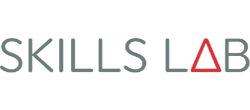FLEX driverless shuttle stage 2 to be supported by SAGE’s National Operations Centre
Published: September 2, 2022 - Updated: September 2, 2022
SAGE Automation is delighted to support the return of the Flinders Express (FLEX) driverless shuttle for a new autonomous vehicle (AV) trial in South Australia.
In 2018 FLEX was South Australia’s first AV trial using public roads, providing a first and last mile shuttle service to the Clovelly Park train station within the Tonsley Innovation District.
Following a successful first trial, FLEX is back on the road as part of the second stage of a five-year project of AV technology on public roads in SA, now looking to push the boundaries by asking ‘what’s next?’.
Stage two of an innovative driverless passenger shuttle trial at Tonsley plans to offer on-demand technology for local residents, introduce high-tech infrastructure to improve autonomous driving and use SAGE’s National Operations Centre (NOC) to simulate no onboard chaperones.
The Flinders University Express Shuttle (FLEX) will carry 11 seated passengers on an expanded 2.8km route around the Tonsley Innovation Precinct, including the popular train station, as a test bed for the future adoption of autonomous technology in South Australia.
The use case plans to introduce on-demand technologies through a mobile app, which is being developed with industry partners RAA, and establishing remote supervision capabilities through SAGE. The trial aims to understand how the application of different technologies and infrastructure can enable the operation and accessibility of automated vehicles.
The pilot is also investigating the integration of autonomous bus technology with SA’s transport network and the public response to driverless technologies.
Technology integration within community, infrastructure a vital step forward
Flinders University Head of Civil Engineering, Professor Rocco Zito, says “It’s important to learn how the use of automated vehicle technology can be adapted into our future planning with the integration of other technologies, so stage two of the FLEX trial can provide greater insights into developing the physical infrastructure and technology required to provide better services for the public and we’re encouraging everyone to try it out.”
In addition to the real-time patron support and operations monitoring provided by SAGE’s National Operations Centre, the Smart Cities team at SAGE have worked to integrate the AV with traffic signals (known as vehicle-to-infrastructure, or V2I).
This allows all kinds of advanced technologies, including AVs, to communicate with surrounding infrastructure to enable future-proofed roads, reduced incidents and congestion, safer intersections and school crossings, and enhanced accessibility and future mobility.
SAGE’s Head of Smart Cities and Future Mobility, Damian Hewitt, explained that integrating technology into existing infrastructure plays a critical role in the success of autonomous vehicles.
“It’s great for FLEX to once again be a part of the transport ecosystem here at Tonsley to trial some exciting new developments in AVs. For example, SAGE is delivering the integration of technology at the intersection of Alawoona Avenue and MAB Circuit, which enables priority signalling. This technology also means that we can tell a vehicle what speed to maintain to get green lights at the intersection,” Mr Hewitt says.
“SAGE is proud to be supporting stage two of the trial and helping to ensure the safety of passengers through our remote monitoring capability. The cameras in the vehicle enable us to make sure passengers are safe during their FLEX ride, in preparation for a time when chaperones are removed for future trials.
“We know autonomous vehicles can play a critical role in improving the public transport experience, particularly in regard to mobility and accessibility, so we’re very proud to be involved in the trial.”
FLEX - led by Flinders University - is an iMove CRC project, with funding partners including the South Australian Government Department for Infrastructure and Transport, RAA, along with industry supporters multi-modal transport operator Keolis Downer, SAGE Automation and AV shuttle technology provider Navya.
FLEX operates five days a week, Monday to Friday from 10am to 2pm. Customers can book a ride on FLEX from the Tonsley train station or from any bus stop to travel within the Tonsley Innovation Precinct by accessing the FLEX website or scanning a QR code along the route.






